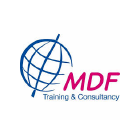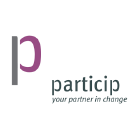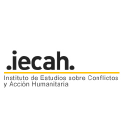WORKING WITH DG ECHO AS AN NGO PARTNER | FPA 2014 - 2020
CONSORTIUM & COORDINATED APPROACH
The number and the complexity of today’s disasters are stretching humanitarian actors’ capacities to respond effectively and efficiently to these disasters. Experience has shown that strengthening the collaboration between the humanitarian organisations operating in the field can bring numerous advantages such as complementarity, increased geographic coverage, increased target population coverage and decreased duplication.
ECHO is supporting two different approaches to increase coordination and collaboration in the field:
-
Coordinated log-frames
-
Voluntary consortia
COORDINATINED LOGFRAMES
The coordinated approach consists in signing one Specific Grant Agreement with individual FPA partner which have decided to collaborate more closely to address the needs of a specific crisis.
Under this approach the collaboration takes place ex-ante between partners present in the field. The partners share their needs assessment (or they carry out joint needs assessment), they develop in a collaborative way their response which is translated into a joint Logframe. Each partner will then submit individual proposal containing the same Logframe. They will therefore work together towards achieving the same objectives but under separate grants.
CONSORTIUM
On a voluntary basis, partners may decide to join forces to respond to complex and major crisis and create a consortium.
Working in consortium is often challenging for humanitarian organisations. In 2012, ECHO funded a report drafted by The Emergency Capacity Building (ECB) Project on the challenges and keys for success of consortium. These key factors for a successful collaboration are summarised below.
-
Common objectives between partners
-
Effective leadership
-
Alignment of procedures
-
Support staff working for the project
-
Commitment for the collaboration (meeting, MOU)
-
Transparent, effective communication
-
Clarify roles and responsibilities
-
Realistic funding
-
Finding common approaches
-
Managing internal crisis within consortium
This said, consortium within an ECHO-funded specific grant agreement is defined as an Action under which several partners (FPA or even sometimes UN/IOs) work together under a consortium arrangement, with one of the FPA partner signing the Specific Grant Agreement and acting as the lead of the consortium, while other FPA partners take part in the implementation as implementing partners.
The lead partner carries the full legal and financial responsibility for the action and will ensure that the obligations of the Specific Grant Agreement are respected by the implementing partners. Several measures have been taken however to facilitate, to the extent possible, the work and interaction of the partners involved in the Action. These measures are explained in the text of these guidelines and are summarised in the table below.
It is of paramount importance for the success of the consortium that the partners agree on the main elements of the Action beforehand, for instance, through a Memorandum of Understanding.






